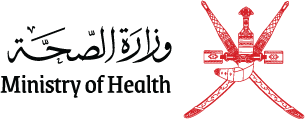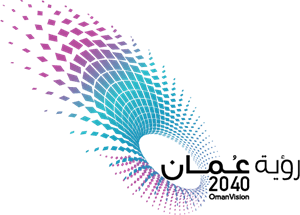The Ministry of Health (MOH) is the main authority responsible for the provision of health care for people living in the Sultanate of Oman. As part of its persistent endeavor to improve health plans, the Ministry has aligned its organizational chart with the strategies and objectives that were developed in 1990, which are summarized as follows:
-
Decentralization of health services and decision-making in technical, administrative, and financial affairs.
-
Emphasizing the role and importance of planning
-
Developing education and training in health field
-
Emphasizing the importance of health-related studies and researches
-
Emphasizing the importance of foreign relations at the regional and international levels.
At the top of the organizational hierarchy of the Ministry of Health stands His Excellency the Minister, assisted by their Excellencies Undersecretary for Planning and Health Regulation, Undersecretary for Health Affairs, along with the Undersecretary for Administrative and Financial Affairs. These Undersecretariats oversee several general directorates and centers working together to achieve the Ministry's ultimate goal: ensuring comprehensive healthcare for all population of the Sultanate of Oman.
Under the enlightened leadership of His Majesty Sultan Haitham bin Tariq (may God protect him), the Sultanate of Oman has made significant progress and substantial growth in providing comprehensive healthcare services to its citizens. Oman will continue its diligent efforts to enhance and preserve this progress and growth, aiming to elevate the well-being of Omani citizens. The Ministry of Health has played a key role in preserving and enhancing the health of citizens, addressing the challenges of diseases, keeping pace with changes and developments, ensuring optimal resource utilization, and continuously striving to find sustainable funding alternatives for the healthcare system. To enhance this pivotal role, the Ministry of Health has outlined a clear vision, mission, objectives, and values, represented as follows:
Mission
Achieving optimal community health by providing high-quality health care at all levels
Vision
A community with high-end care and sustainable health.
Value
The Ministry will adhere to fundamental values and principles governing operations across all facilities under the Ministry of Health during its duties.
-
Meeting the population's healthcare and service needs through developing institutional structures characterized by sustainability and decentralization.
-
Developing policies, strategies, regulations, and laws concerning the advancement, development, and reform of the healthcare system
-
Healthcare quality assurance
-
Reducing the various morbidity and mortality rates.
-
Directing care towards vulnerable groups in society such as the elderly, children, and pregnant women.
-
Providing the best disease treatment and control methods.
-
Developing, enhancing, and training healthcare human resources.
-
Providing a healthy working environment, supportive of continuing professional development.
-
Promoting health studies and research that serve the health system
-
Ensuring community-based and other sector participation in the health field.
-
Developing national health policies within the framework of the general policy of the state, and monitoring their implementation after approval by the Council of Ministers.
-
Strategically planning and directing the delivery of healthcare services under national development plans, ensuring decentralized, transparent, equitable, and accountable healthcare provision. This includes developmental projects, health programs, and other initiatives, with ongoing monitoring and evaluation.
-
Supervising governmental and private healthcare institutions, taking necessary measures to monitor these institutions and ensure their compliance with their duties, and promoting integration among them to provide healthcare services.
-
Coordinating between the units of the administrative apparatus of the State, other relevant public entities, and specialized private institutions regarding the provision of healthcare across primary, secondary, specialized, rare, and precision levels. This includes emergency services, disaster response, medical evacuations, and patient transfers between these entities, standardizing health indicators, and establishing necessary mechanisms for these processes.
-
Organizing and providing comprehensive healthcare services, including preventive, diagnostic, therapeutic, rehabilitative, and other aspects, for all citizens, their families, and residents following royal decrees, laws, regulations, and organizational decisions governing these services.
-
Adopting necessary measures using modern scientific techniques to prevent diseases and health emergencies, and to maintain national health security.
-
Issuing licenses for medical and allied medical professions to private health institutions, as well as to practitioners in government units, other public entities, and private institutions, while regulating and monitoring their performance.
-
Planning for human resource development in the health sector within the framework of the State’s human development policy, including developing a national strategy for health education aimed at achieving self-sufficiency in general and specialized medical and paramedical categories across various health fields, and participating in setting health education standards to ensure its quality in coordination with the relevant authorities.
-
Monitoring and providing information, data, and health statistics within the units of the administrative apparatus of the State, other relevant public entities and private institutions, and utilizing this information to enhance national health. This includes conducting studies and research, and encouraging innovation in various health fields to support decision-making, planning, monitoring, and evaluation.
-
Developing training and qualification programs in collaboration with government and private educational and training institutions for medical and paramedical categories to advance their scientific and professional standards.
-
Collaborating with health educational institutions to train their graduates in hospitals, healthcare facilities, and research and study centers in the health fields.
-
Ensuring the availability of medications according to the unified procurement policy for all health institutions within the units of the administrative apparatus of the State, and other relevant public entities, and taking necessary measures to guarantee their quality.
-
Monitoring the manufacturing, importation, distribution, and utilization of medicines, health products, medical devices, and equipment, in accordance with the applicable laws, regulations, and decisions.
-
Encouraging the private sector to support healthcare services, issuing licenses for establishing private healthcare institutions, and monitoring their performance, in accordance with relevant laws, regulations, and directives, in coordination with the relevant authorities.
-
Raising health awareness in the community and encouraging individuals to actively participate in improving and maintaining their health.
-
Collaborating with ministries and relevant authorities on health-related matters, particularly environment, food safety, and related issues.
-
Providing continuous education and professional development programs through seminars, workshops, scientific meetings, health days, and other developmental activities, to enhance the capabilities of healthcare professionals.
-
Keeping track of health advancements and developments, as well as new occurrences in the global health landscape, and taking appropriate measures to keep up with these developments or address potential challenges.
-
Promoting adherence to professional ethics by establishing necessary regulations and overseeing their implementation, in accordance with the laws governing healthcare practice.
-
Enhancing cooperation in health-related specialties with relevant authorities in regional and international organizations and specialized institutions.
-
Organizing health conferences and representing Oman at regional and international health-related conferences, events, and meetings.
-
Proposing draft laws and royal decrees, and issuing regulations and decisions related to the Ministry's competencies.
-
Signing agreements and memoranda of understanding related to the Ministry's competencies, in coordination with the relevant authorities.
-
Any other competencies assigned by laws and royal decrees.
-
Issues assigned by the Sultan or the Council of Ministers.
The first National Health Policy was placed in 1992, successfully providing a road map for the development of the health system in the Sultanate. 30 years later, and the National Health Policy has been updated to carry on this progress, aiming to enhance health in the Sultanate of Oman and its population.
-
Its purpose : sustainable health for everyone and shared responsibility by everyone.
-
Its mission : ensuring a healthy life for all residents in the Sultanate of Oman
-
Its slogan : “Health For All By All”

